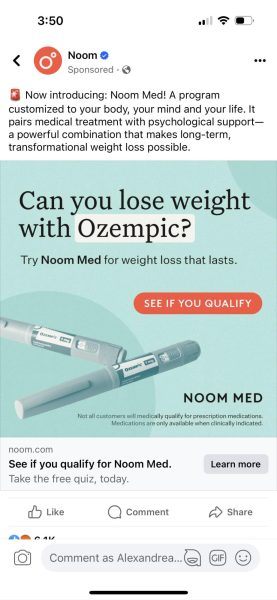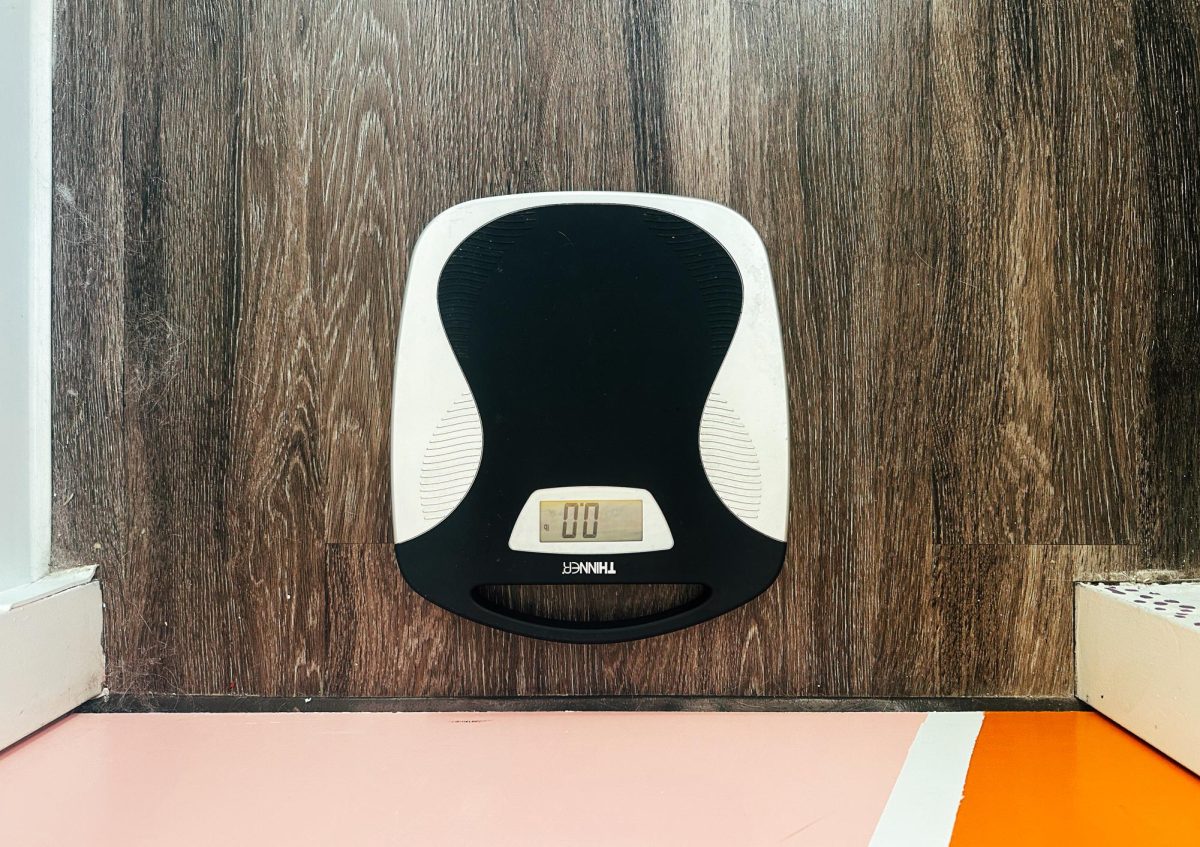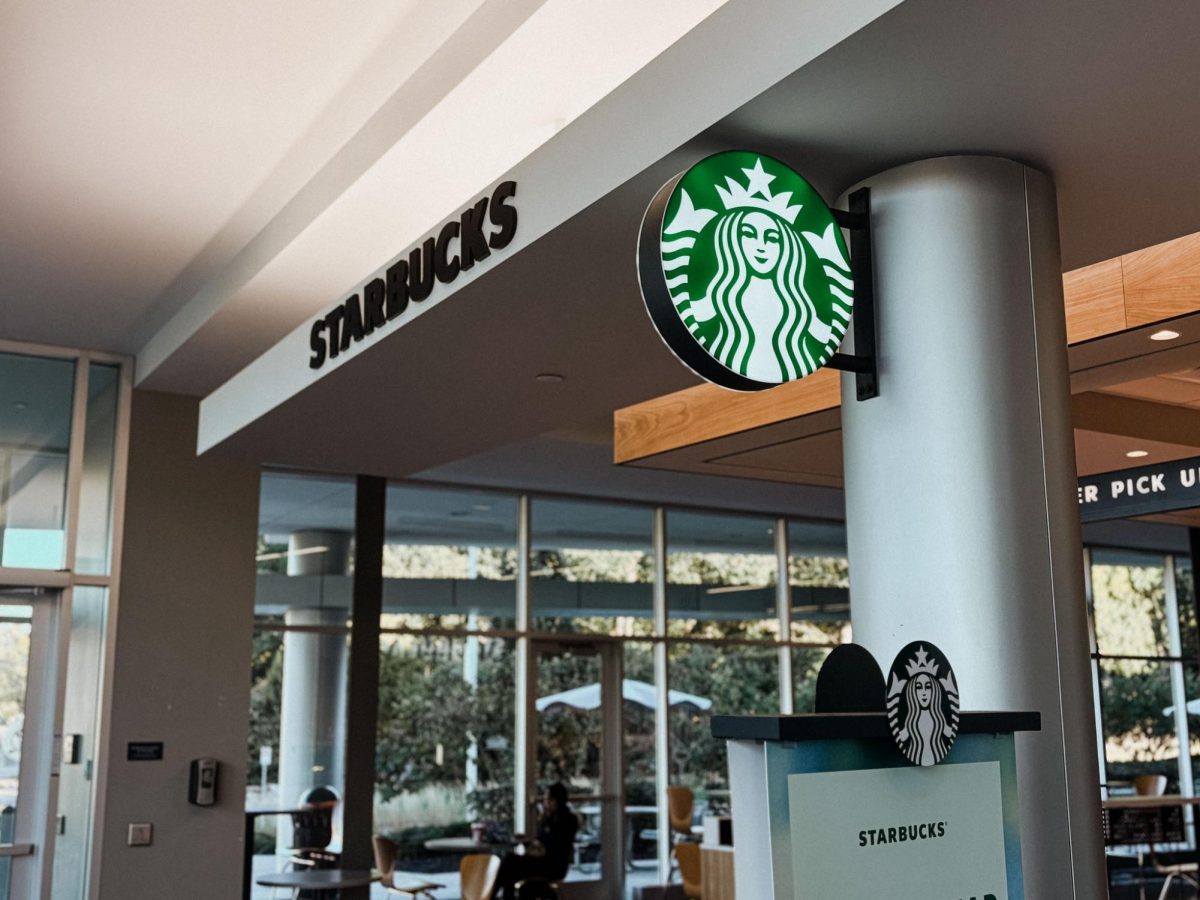When something seems too good to be true, it probably is.
I grew up witnessing the beauty trends of the 2000s that were fueled by cigarette-smoking runway models, restricting themselves to lettuce and Diet Coke before a show, and I don’t long to go back to those days.
The drug, originally intended to lower blood sugar levels, is increasingly being used for weight loss. Diet culture and fat-shedding fads are not new, but the overwhelming reluctance to openly admit the use of Ozempic for its unintended consequences is alarming.
In the last week alone, I have come across 3 different sponsored ads for a qualifying quiz to see if I am eligible for a “weight loss that lasts.”

To be completely transparent, I do not and have not ever needed a prescription supplement or diet to lose weight. I am being targeted for these ads as a 20-something-year-old, small framed, woman, and so is every other young person that has ever googled “what does BMI mean?”
We are at a cusp in time where body positivity has never been louder and prouder while simultaneously being spoon-fed the “thinness = healthiness” narrative.
So, why has Ozempic garnered such popular support? Weight Watchers, Slim Fast, and Flat Tummy Tea have been around for much longer, and these programs didn’t work without at least some physical activity. Ozempic isn’t a pill or a liquid either. It’s an injectable, so the commitment is real.
I fear the long term results will be much worse when people hop off the O-train to re-gains-ville. There is no way this shot is any better or more useful than a mindful diet, practical exercise and my personal favorite, lots of water!
While I am against the abuse of Ozempic, I am not against those who partake in physician-consulted usage. I am not an expert or medical consultant by any means, I just worry for my fellow humans faced with the impossible task of achieving perfection by society’s fluctuating standards.




















